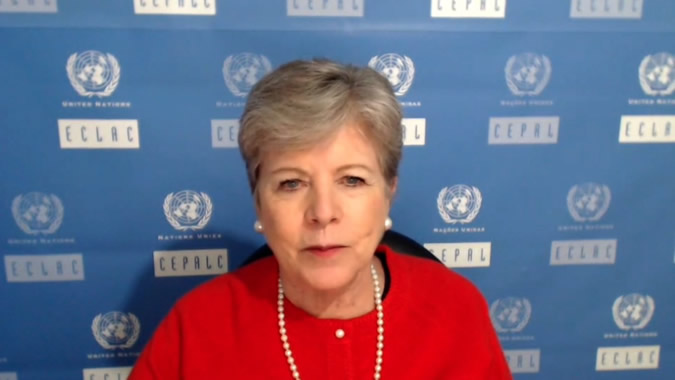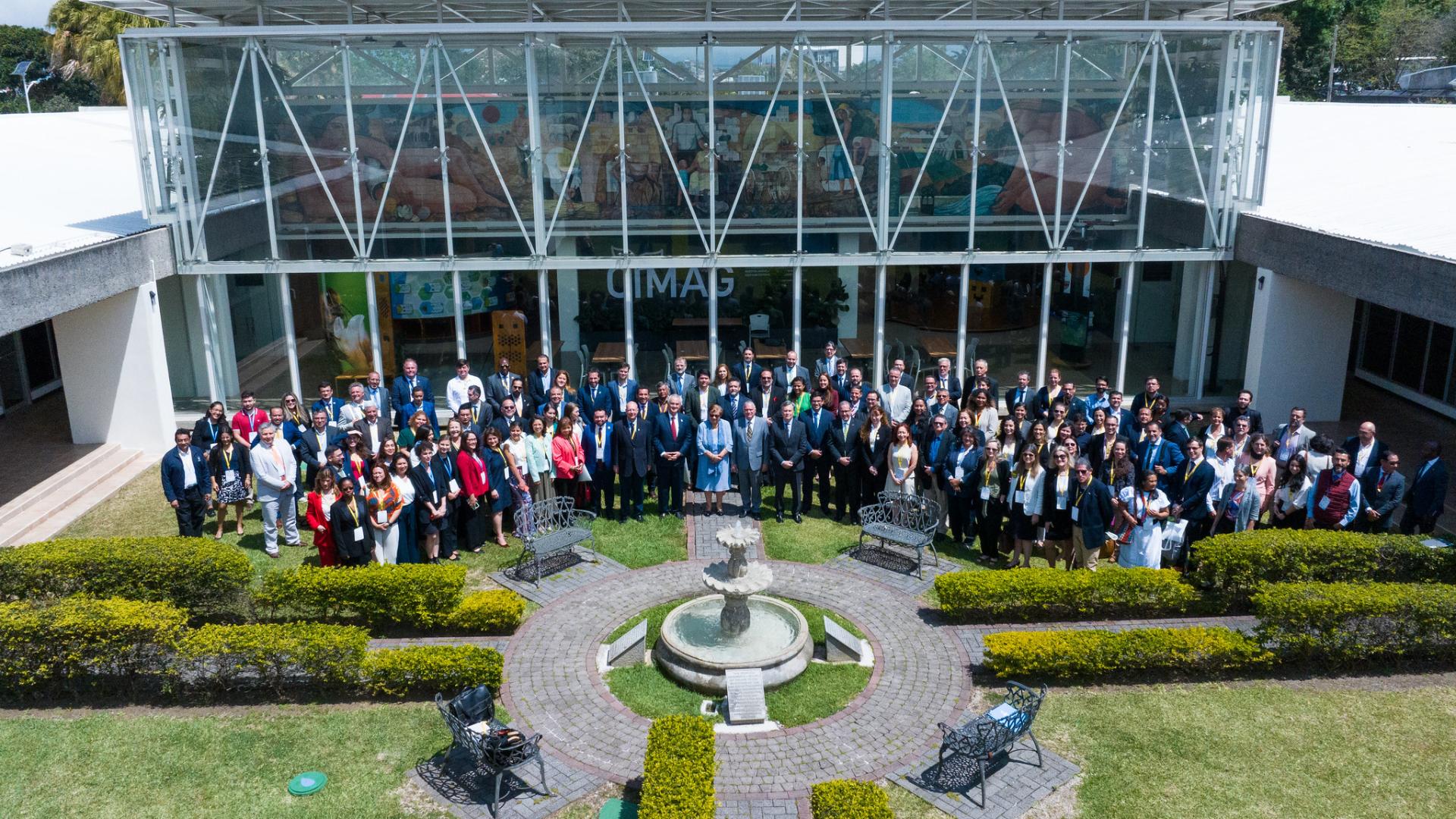Briefing note
The Executive Secretary of the Economic Commission for Latin America and the Caribbean (ECLAC), Alicia Bárcena, affirmed today that promoting greater incorporation of the circular economy will enable the region to move towards a more sustainable, inclusive and low-carbon development pattern, during a virtual seminar organized by ECLAC, the Presidency of COP25 and Euroclima+.
“The circular economy, by minimizing the input of new materials and energy, reduces environmental pressure, the emission of pollutants, especially greenhouse gases, and reduces imports and enables savings in foreign exchange,” ECLAC’s highest authority sustained.
She added that in the circular economy, residual products are not seen as waste but instead as resources, which is important if one takes into account that in order to achieve sustainable economic development throughout the world by 2050, the use of materials in industrialized countries must be cut by 90%.
The seminar, entitled “Progress towards a circular economy in Latin America and the Caribbean: Challenges and opportunities for achieving a more sustainable and low-carbon development pattern,” was inaugurated by Alicia Bárcena and Felice Zaccheo, Head of Unit at the Directorate General for International Cooperation and Development of the European Union. Also participating were representatives of government and international organizations.
In her remarks, delivered via a pre-recorded video, ECLAC’s Executive Secretary stressed the need to move towards a path that would foster structural change and strengthen the goals of the 2030 Agenda and the Paris Agreement. To achieve this, she said, very robust programs are needed both in terms of public spending and public and private investment.
She emphasized that the significant public investment being made by countries to attain economic recovery, invigorate demand and generate more employment should be focused on more resilient and low-carbon activities. However, she explained, spending on the so-called brown recovery is much higher than on a green recovery, at a ratio of 4 to 1.
“Of the $51 billion dollars that the region’s countries have spent on the economic reactivation, just 2.9% corresponds to green initiatives. On a global level, the percentage of the reactivation that goes to green initiatives is 21%. Therefore, the proportion is still very low for being able to use these packages to truly shift towards a sustainable path,” she stated.
Alicia Bárcena noted that Latin America and the Caribbean generates nearly 1 kilogram of waste per capita each day, and that waste collection coverage in the region is high in comparison with the global average.
She added that in urban areas, around 85% of waste is collected, although the numbers vary from one country to another. This figure stands in contrast to the situation in rural communities, where waste collection coverage is 30% and there is more circularity.
“There is a complex situation with regard to the management of organic waste. Every second, a quantity equivalent to six garbage trucks of edible food is lost or wasted in the world, meaning that 30% of the food that is produced annually for human consumption is wasted. In Latin America and the Caribbean, meanwhile, 15% of available food is lost or wasted each year,” the senior United Nations official warned.
She also underscored that from 1950 to 2017, global plastic production rose from 2 million to 348 million tonnes annually. By 2050, that figure will rise to 1.124 billion tonnes per year, a volume that would represent 20% of total oil consumption in the world. In Latin America and the Caribbean, meanwhile, plastic represents 13% of all waste and its poor management leads to pollution of the region’s soil and seas.
ECLAC’s Executive Secretary specified that in the region, only 4% of urban solid waste is recycled on average, in contrast to developed countries, where the rate is around 20%.
“The majority of existing initiatives in the region are associated with traditional waste management and they must have a more comprehensive vision that would enable addressing, to a larger extent, the aspects and sectors involved in the circular economy. A mechanism for strengthening the circular economy lies in the laws of Extended Producer Responsibility, which extends to the post-consumer stage of a product’s life cycle. This implies that manufacturers and importers take responsibility for collecting their products once their useful life has ended,” she explained.
Finally, Alicia Bárcena stressed that moving towards greater incorporation of the circular economy in the region requires making changes to public policies, regulation, management systems, public finances, investment, financing systems and capacities in all countries.
“All the stages must be addressed: that of production, consumption, and final waste disposal. If Latin America and the Caribbean’s waste and recycling sector were developed to become a key sector, and had a municipal waste recycling rate equivalent to that of Germany, it could contribute to a green economic reactivation: nearly 450,000 stable jobs would be created and the region’s GDP would increase by 0.35%,” she emphasized.
“We are convinced that the benefits of the circular economy are not just economic, but also social and environmental,” she concluded.


